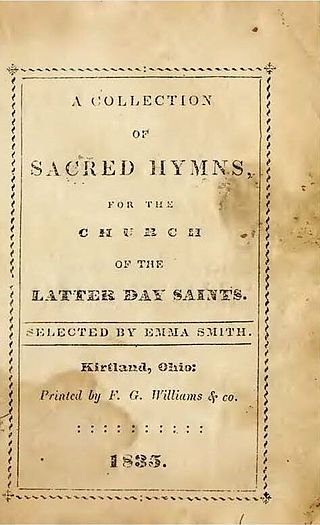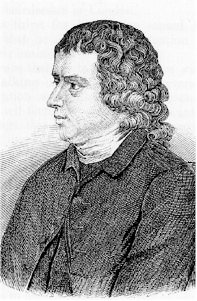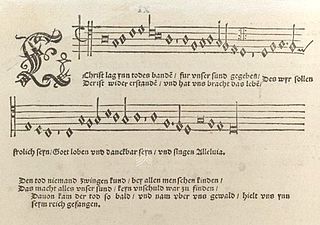A doxology is a short hymn of praises to God in various forms of Christian worship, often added to the end of canticles, psalms, and hymns. The tradition derives from a similar practice in the Jewish synagogue, where some version of the Kaddish serves to terminate each section of the service.

Frances Ridley Havergal was an English religious poet and hymnwriter. Take My Life and Let it Be and Thy Life for Me are two of her best known hymns. She also wrote hymn melodies, religious tracts, and works for children. She did not occupy, and did not claim for herself, a prominent place as a poet, but she carved out a niche for herself.
"The Spirit of God Like a Fire Is Burning" is a hymn of the Latter Day Saint movement. It was written by W. W. Phelps, one of the most prolific hymnwriters of early Latter Day Saint movement.

A Collection of Sacred Hymns, for the Church of the Latter Day Saints. was the first hymnal of the Latter Day Saint movement. It was published in 1835 by the Church of the Latter Day Saints.

Robert Lowry was an American preacher who became a popular writer of gospel music in the mid- to late-19th century. His best-known hymns include "Shall We Gather at the River", "Christ Arose!", "How Can I Keep from Singing?" and "Nothing But The Blood Of Jesus".

A Christian child's prayer is Christian prayer recited primarily by children that is typically short, rhyming, or has a memorable tune. It is usually said before bedtime, to give thanks for a meal, or as a nursery rhyme. Many of these prayers are either quotes from the Bible, or set traditional texts.

"I Surrender All" is a Christian hymn, with words written by American art teacher and musician Judson W. Van DeVenter (1855–1939), who subsequently became a music minister and evangelist. It was put to music by Winfield S. Weeden (1847–1908), and published in 1896.

"We Gather Together" is a Christian hymn of Dutch origin written in 1597 by Adrianus Valerius as "Wilt heden nu treden" to celebrate the Dutch victory over Spanish forces in the Battle of Turnhout. It was originally set to a Dutch folk tune. In the United States, it is popularly associated with Thanksgiving Day and is often sung at family meals and at religious services on that day.

"Come Thou Fount of Every Blessing" is a Christian hymn written by the pastor and hymnodist Robert Robinson, who penned the words in the year 1758 at the age of 22.
Jaroslav Vajda was an American hymnist.

"All the Way My Savior Leads Me" is a Christian hymn with lyrics written in 1875 by Fanny J. Crosby (1820-1915) to a tune written by the Baptist minister Dr. Robert Lowry.

O filii et filiae is a Christian hymn celebrating Easter. It is attributed to Jean Tisserand, a Franciscan friar.

"Christ lag in Todesbanden" is an Easter hymn by Martin Luther. Its melody is by Luther and Johann Walter. Both the text and the melody were based on earlier examples. It was published in 1524 in the Erfurt Enchiridion and in Walter's choral hymnal Eyn geystlich Gesangk Buchleyn. Various composers, including Pachelbel, Bach and Telemann, have used the hymn in their compositions.
Yes, Lord! is the hymnal used by the Church of God in Christ. It was published in 1985 by the COGIC Publishing Board under the leadership of a on Bishop J.O. Patterson, Sr.

"Gelobt sei Gott im höchsten Thron" is a hymn for Easter in 20 stanzas in German by Michael Weiße, widely known with a later melody by Melchior Vulpius. Shortened, it is part of current Protestant and Catholic German hymnals.

"Allein Gott in der Höh sei Ehr" is an early Lutheran hymn, with text and melody attributed to Nikolaus Decius. With the reformers intending church service in German, it was intended as a German version of the Gloria part of the Latin mass, used in almost every service. Decius wrote three stanzas, probably in 1523, while a fourth was added, probably by Joachim Slüter.

"The Strife is O'er, the Battle Done" is a Christian hymn that is traditionally sung at Easter to celebrate the Resurrection of Jesus. It was originally a 17th-century Latin hymn, "Finita iam sunt proelia"; the popular English-language version is an 1861 translation by the English hymnwriter Francis Pott.
"Herr, nimm auch uns zum Tabor mit" is a Christian hymn with text by Peter Gerloff, written in 2001, with a melody by Richard Mailänder. The song was included in the Catholic hymnal Gotteslob.












